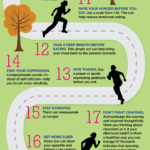I’ve included a photo of me with my mom celebrating Mother’s Day at the Rail in Canton, Ohio—one of our favorite places! Over lunch, we discussed some of the eating/shopping/food habits that I acquired from her over the years (I talk in more detail about how my mom shaped my relationship to food in my book, EatQ).

For example, I always buy very green bananas, only purchase an expensive brand of potato chips when there are holiday parties and make sure I am stocked up on peanut butter just in case of a blizzard—which do happen here in Ohio. These may seem like silly little things but research indicates that your parents or caregivers have a pretty profound impact on your relationship to food.
For example, a very recent study, in the journal The American Journal of Clinical Nutrition found that parents who used food as a reward system with their kids between the ages of three and five were more likely to be stress eaters. This is no big surprise.
Also, in the journal of Obesity, a study reported that families who frequently eat in the kitchen or at a dining room table had significantly lower BMI (body mass index) for adults and their children compared to families who ate somewhere else (ex. in front of TV). Furthermore, remaining at the dinner table until everyone is finished eating is associated with a lower BMI for boys.
Let me be clear. How your caregivers feed you and teach you to eat aren’t the only factor that shape your eating habits. Eating habits are very complex—from economics, where you live, stress level, biology, other role models in your life etc.
The important aspect is to be conscious and MINDFUL of why you eat the way you do. Simply being more aware of the root of these habits can help you make more conscious and intentional choices.
The first step? Today, I would encourage you to answer these three important questions:
- Who had the biggest impact on your food habits growing up?
- Name one positive and one challenging impact this person had on the way you eat.
- What habit that you acquired from this person would you like to transform and/or do more frequently?
Take the information and use it mindfully today. Break out of routines. Let go of the past. Or, get reacquainted with healthy family habits!
*Source: Farrow CV, Haycraft E, and Blissett JM. Teaching our children when to eat: how parental feeding practices inform the development of emotional eating—a longitudinal experimental design. The American Journal of Clinical Nutrition. 2015.
*Wansink B1, van Kleef E. Obesity (Silver Spring). 2014 May;22(5):E91-5. doi: 10.1002/oby.20629. Epub 2013 Dec 19. Dinner rituals that correlate with child and adult BMI.





